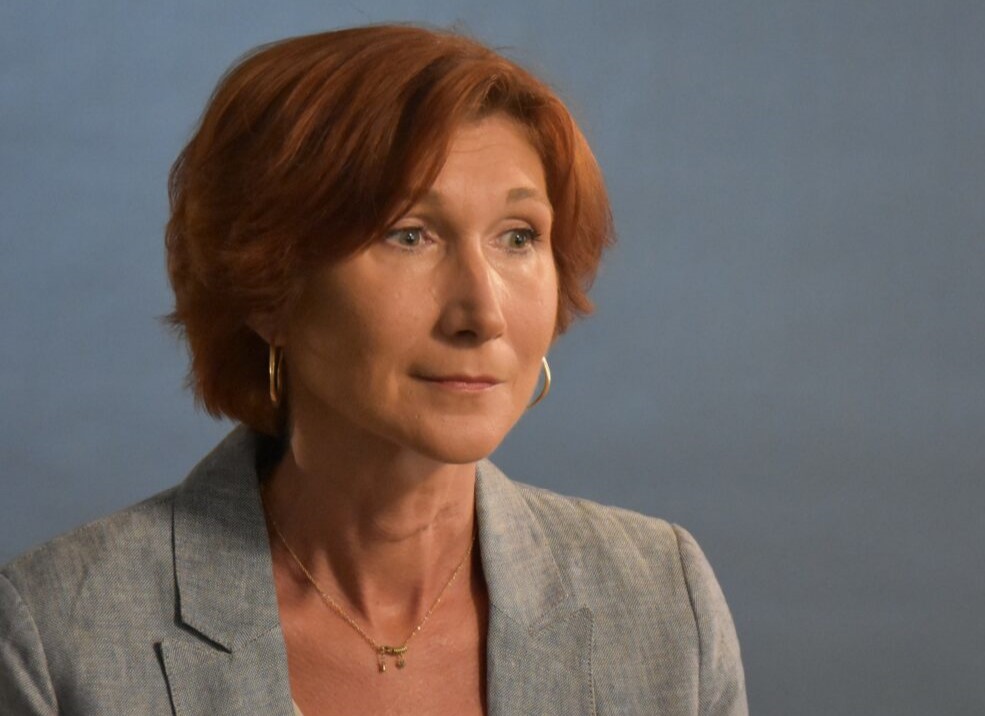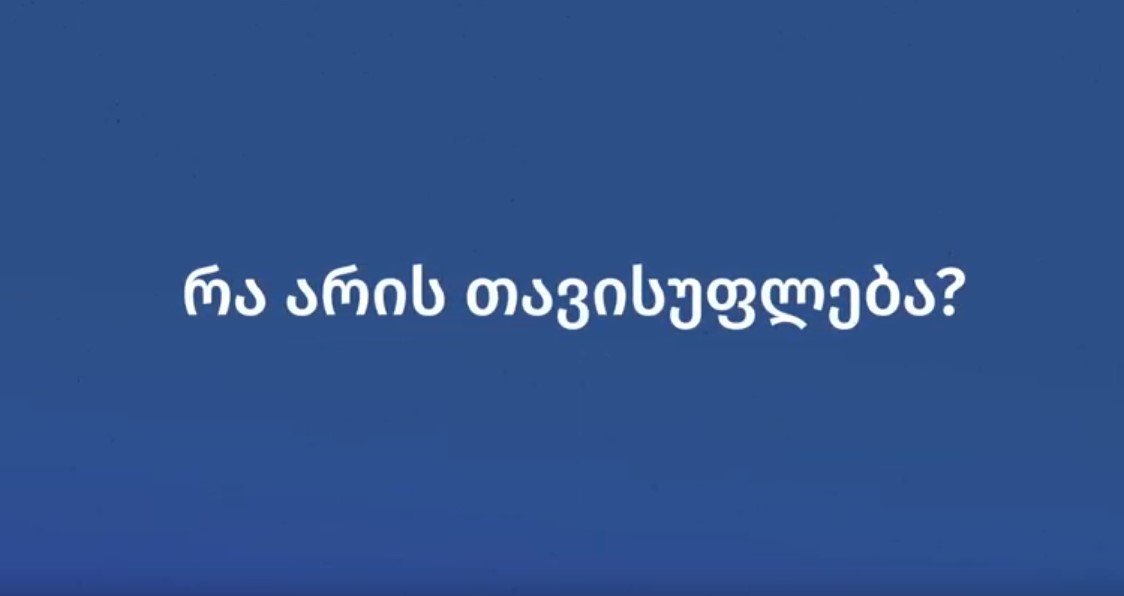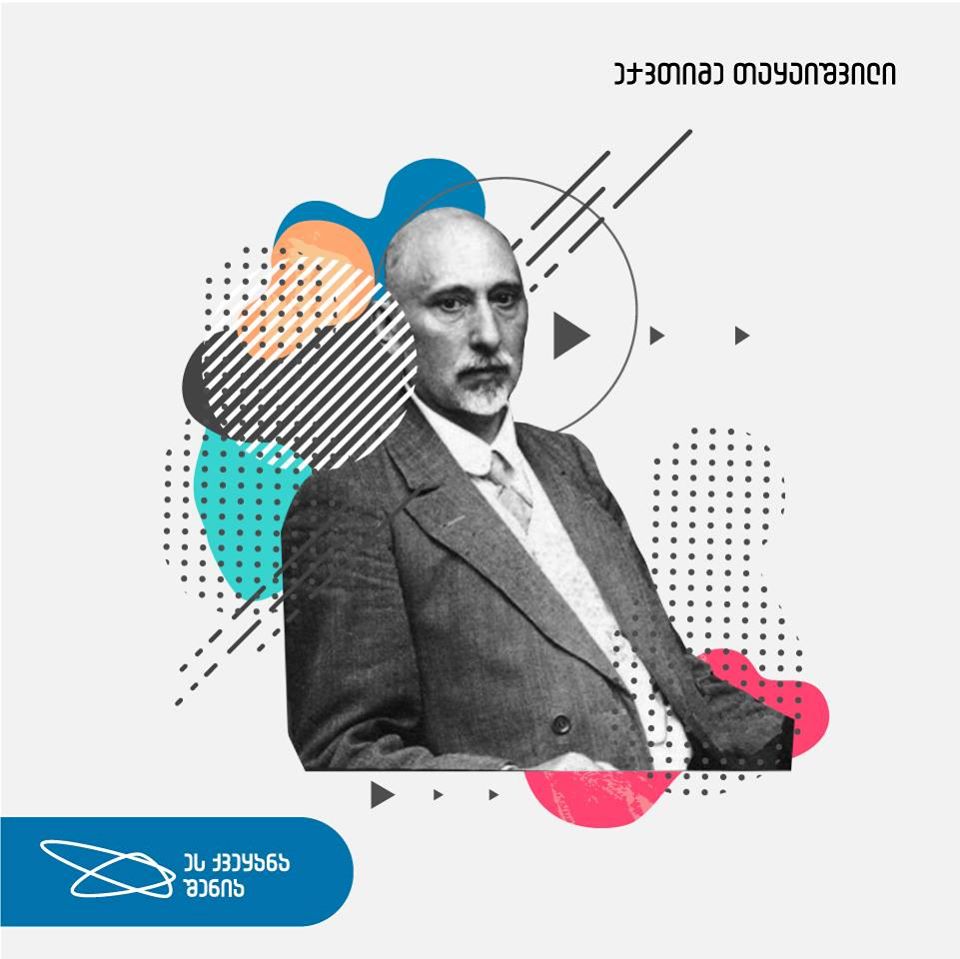More is Achievable through Coalition Work
Popular





CSO web portal has interviewed the "Open Society – Georgia" Foundation's Local Democracy Development Program Manager Tiniko Bolkvadze.
Interviewed by Lali Shalvashvili
How would you assess the environment that non-governmental, i.e. civil society organizations have to work in? What are the similarities and differences between the current situation and that of five or eight years ago?
Tiniko Bolkvadze – Just like when the previous authorities came to power, now the non-governmental sector was with high hopes. Approximately one year after the 2003 parliamentary elections, the authorities were open with CSOs for cooperation. Afterwards these links, let’s say were closed and there were only single examples of successful cooperation between the CSOs and the state sector. When the ways of cooperation were cut off, CSO representatives had to pursue mainly "watchdog” activities.
As for the current situation, I would say the new authorities are not as open as in the aftermath of the 2012 parliamentary elections. In the first months cooperation was much more intense and successful, but gradually a trend of reducing the eagerness to cooperate comes up. I don’t think this concerns every ministry and state agency. There are successful examples of cooperation and this process still continues. In our case I would focus on the Ministries of Justice and Infrastructure, with which the intense work is underway. However, I couldn’t say the same about several other ministries, for instance the Ministry of Health, where CSOs meet much more obstacles. Nevertheless, if we overall compare and assess the CSO working environment during the previous and current authorities, there are probably better conditions anyway.
You have mentioned that the authorities in the aftermath of the 2012 elections were in the beginning more open and eager to cooperate, so what do you think has happened? Why is the desire to cooperate fading away?
Tiniko Bolkvadze – There is no straightforward answer to this. Maybe in some cases this is a fault of CSOs, when some of them may not be constructive or lack qualification to do something that would assist the state structures. Yet, there are other reasons as well. After the new authorities came to power, certain councils and various consulting bodies were set up with the ministries, and it may be that some of them have exhausted their functions. For instance, the Advisors’ Council was set up with the Ministry of Infrastructure, which worked on the draft self-government law. Today the Code is adopted, and possibly there is no need for the Council to work as intensely as previously.
You have mentioned qualification of several CSOs as one of probable causes of declining cooperation between the authorities and CSOs. Can this picture be generalized with respect to cooperation between the authorities and CSOs as a whole?
Tiniko Bolkvadze – No, of course not. If a CSO has relevant qualification and their interests concur in doing work jointly and achieving specific result – then cooperation is successful.
You have worked in a non-governmental sector for years and observed their activities. What are the sector's achievements and what has it failed to achieve?
Tiniko Bolkvadze – After the 2003 elections we all remember well how the cadres started leaving the sector in favor of the state structures. This was quite intense. Individuals have left the sector for the state agencies after the 2012 elections as well, but this was not such a bad loss as back in 2003-2004. I believe in recent years non-governmental sector has more or less strengthened and started replenishing. Several new CSOs were established that work successfully. For example, the Institute for the Development of Freedom of Information, which was founded few years ago and now, is one of the successful organizations. Overall, I believe the non-governmental sector is strengthening gradually. And another significant trend can be identified – the non-governmental sector witnessed the importance of coalition work, and that they can achieve more together than individually. Such partnership started from the end of 2011, we can refer to campaign "This Affects You Too”, Media Coalition. They have achieved much more than individual organizations, and especially when they had to carry out advocacy campaigns in extremely grave conditions.
What about relations between the population and CSOs? Experts say the sector has failed to establish firm relations with the population... and this is perceived as the sector's drawback...
Tiniko Bolkvadze – It is unfortunate but insufficient work with the population is a fact. Large organizations manage this more often. Over the last year "Open Society – Georgia” Foundation has supported at least 150 meetings with the local population only to discuss one draft law – the Self-Government Code. Yet, there is still a lack of relations and if the non-governmental sector is rebuked for that, this is definitely deserved. More work at a local level is needed probably. On the other hand, often large donors fund leading organizations to achieve tangible results. Accordingly, less attention is paid to the local, regional organizations, which are capable of doing much more locally than the Tbilisi-based CSOs.
You have mentioned the advantages of coalition work. How come the coalition activities are not pursued to illustrate the population's problems?
Tiniko Bolkvadze – We have started working with numerous CSOs on a new legislative initiative concerning citizen participation in the self-government activities. It should solve many problems only if the Parliament adopts it and accepts our ideas. In this case, Tbilisi-based or regionally operating organizations will have more opportunities to contact the local population. We must learn their opinion on the local authorities and their participation at the local level, i.e. we should get their advice. Accordingly, in the coming year we will work in this direction and try to remedy many gaps, as in terms of relations of CSOs with the population, as well as fixing the legislation.
Can you be more specific about mechanisms that the initiative includes?
Tiniko Bolkvadze – Legislative initiative is not formulated yet, and to be more correct, the relevant parliamentary committee has developed one draft law, which the committee has withdrawn later on. After that the citizen participation mechanisms were included in the draft Self-Government Code, but during the debates the Parliament has rejected this part, by referring to badly formulated articles of the Code. They provided for the establishment of councils at the level of villages, and districts in Tbilisi. We believe the regulations included in the draft law were not sufficient for ensuring tangible participation. Hence, we are thinking about alternative mechanisms or what could be added to the relevant part of the draft law to make it more perfect, and how could citizens participate in the local self-government activities without setting up the councils.
You have mentioned "if the Parliament accepts the initiative"... Could it definitely not accept the issue concerning the citizen participation mechanisms in the self-government activities?
Tiniko Bolkvadze – I don’t know what the Parliament decides. In the nearest future we will meet with the MPs, CSOs and representatives of the executive authorities where we will submit proposals at the level of ideas. We are interested in what would be acceptable for the Parliament, which must examine it, as well as for the Government, which must initiative the draft law. Therefore we will try to share the positions of legislative as well as executive authorities. Nevertheless, the position and opinions of the population will be most important.
CSOs are being criticized lately and what do you think is the reason? Is this criticism right and how does the sector comprehend it?
Tiniko Bolkvadze – It depends on the criticism. CSOs would have comprehended criticism absolutely normally, unless the Prime Minister would have used words such as "subversive activities”, "activities against the state”. In principle these were accusations against the non-governmental sector. Obviously, CSOs have comprehended all of this painfully. On other occasions criticism against them was not so painful. I therefore don’t rule out that sometimes criticism is deserved, but it would be better to weigh and assess the activities of these organizations prior to making evaluations. Recently I have read criticism against the Young Lawyers’ Association in relation to the May 26 developments. GYLA had to defend itself and prove it had definitely worked on this issue, they have done much more than just one report – they were meeting with CSOs, international organizations, representatives of diplomatic corps. I would ask representatives of the authorities to review the work of CSOs not only currently but in recent years as well, and to make serious accusations only afterwards.
In one of the TV political talk-shows the Prime Minister has explained his comments towards CSOs and tried to tone it down to a certain extent...
Tiniko Bolkvadze – This step of his had to be hailed indeed and the campaign "This Affects You Too” has mentioned this several times. Yet, this is different because when the Prime Minister makes such accusations, then other representatives of the authorities and MPs repeat the same, i.e. the Prime Minister’s statements are imitated by some politicians, which is rather unfortunate especially when many of them know very well what these organizations have been doing all these years. I must recall another phrase: "Where were they in previous years, why didn't they speak up about this?" – it seems CSOs should be reminding quite often about what they've done in recent years and how they've been reacting during the rule of the National Movement. I want to stress once again it was the hardest period when we launched the campaign "This Affects You Too". Everyone remembers grave election environment and the resistance from the authorities. We should recall people summoned by the Chamber of Controls, sheer terror, etc. If we take a look at our activities prior to the 2012 elections, I think the politicians in power should be less critical.
Since we have mentioned "This Affects You Too" campaign, it turned out that part of politicians has criticized the phrase "They Are Still Listening", because it was perceived to be in an affirmative form...
Tiniko Bolkvadze – Some perceive this in an affirmative form, and some don't. There is a differing opinion about this among politicians as well. We claim that the authorities are able to listen to approximately 20 thousand subscribers, we are not saying that representatives of some state structure are sitting and listening to 20 thousand subscribers. We believe this capacity of the authorities should be restricted by adopting the right legislation and introducing European standards – this is the goal. We have talked about this numerous times, but afterwards these words are interpreted differently.
The Parliament has adopted this initiative and partnership was sealed, preceded by a "noise" around this issue. Accordingly, this is a bit confusing... What was the reason behind this criticism?
Tiniko Bolkvadze – Those who voted for this draft law agree that current practice must change. Some were stating this publicly and some behind the scenes. The country's security was brought as a reason. We are saying there should be a balance between the country's security and the human rights standards. These standards must not be dangerous for the country. Part of the MPs who were criticizing I think have followed the Prime Minister's statement, without fully acknowledging the problem. Let's not talk about the Rustavi 2 case, but I believe a lot of people saw that someone may be listening to them today or in the future.
Let's go back to the sector in general. In the beginning you have mentioned that the number of CSOs is increasing, and aren't older organizations vanishing in parallel?
Tiniko Bolkvadze – New CSOs were actively emerging after the 2012 parliamentary elections. Large number of organizations founded in last two years mostly employs representatives of the previous authorities. Former civil servants have moved to the non-governmental sector, but there are exceptions as well.
After 2003 international donor organizations have changed the policy and a large portion of finances was headed towards the state. What is your current observation of their policies?
Tiniko Bolkvadze – In the beginning we have discussed causes of weakening the non-governmental sector, and the abrupt reduction of funding after the 2003 elections was one of the key causes. Now certain policies have changed, but I wouldn't say very harshly and leaving the sector without funding. Currently they have much more opportunities than in 2004-2005. Funding priorities always change, depending on the country's vector. In certain cases risks are assessed and the priorities are changed as prevention. Every donor approaches this in its own way.
What are the three key values that the work of CSOs must be built on?
Tiniko Bolkvadze – Loyalty to ideas and work, professionalism and good faith.









